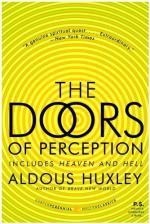
|
| Name: _________________________ | Period: ___________________ |
This quiz consists of 5 multiple choice and 5 short answer questions through Book 2: Appendix 6.
Multiple Choice Questions
1. The author discusses the history of what type of ideas at the end of Appendix 6?
(a) Theological.
(b) Psychological.
(c) Physiological.
(d) Eschatological.
2. When did fireworks re-enter the world of popular entertainment, according to the author?
(a) During the Industrial Revolution.
(b) In the mid-18th century.
(c) During the reign of Elizabeth I.
(d) During the Renaissance.
3. Upon what evidence does the author base his comparison of a schizophrenic's experiences?
(a) Descriptions given by ancient religions.
(b) The stories told to him by a psychotic friend.
(c) His own experience with drugs.
(d) Journal entries he wrote during his own psychotic break.
4. According to the author, at the end of Appendix 1 what is one claim that is made almost universally by visionaries?
(a) They never have the same vision twice.
(b) They are unable to recall the experience in anything approaching its original intensity.
(c) They are unable to produce the visions at will, regardless of the methods they try.
(d) They can only have the visions when they are in the right frame of mind to do so.
5. To what sort of life are schizophrenics condemned, according to the author?
(a) Ineffectiveness and solitude.
(b) Fury and isolation.
(c) Apathy and catatonia.
(d) Frustration and anguish.
Short Answer Questions
1. What were the two primary uses of the science of "pyrotechny," according to the author?
2. To whom does the author attribute the concept of Hades, mentioned in Appendix 6?
3. What was a magic lantern show?
4. What is the potential danger of the second technique described in Appendix 1?
5. According to the author, where do the mentally-ill people discussed at the beginning of Appendix 6 spend their time?
|
This section contains 336 words (approx. 2 pages at 300 words per page) |

|




